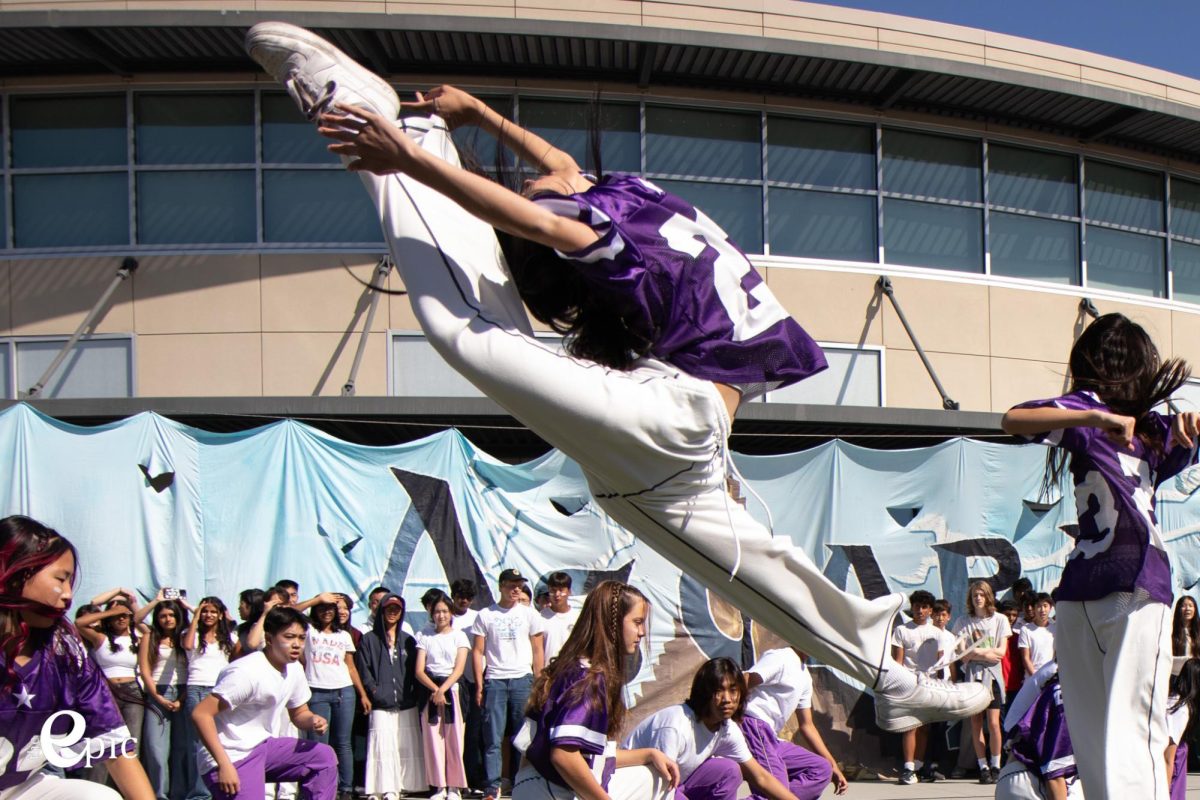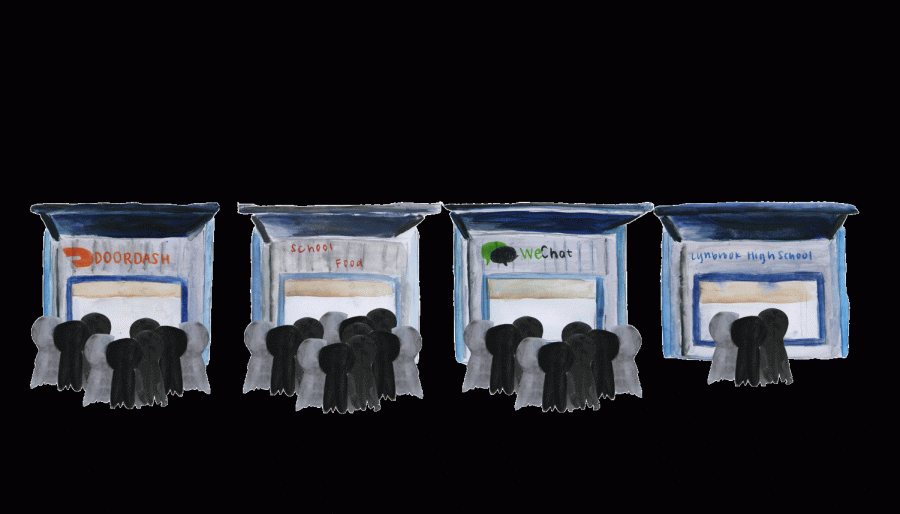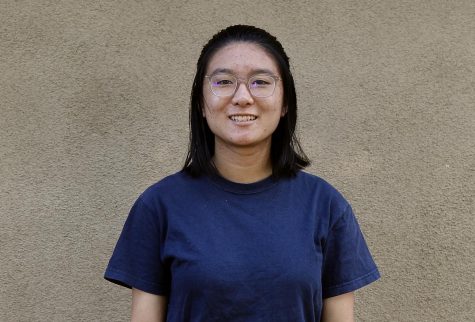Food deliveries give rise to safety concerns
October 5, 2018
The bell rings, and it is lunch time. Lynbrook students file out of their classrooms. Some head toward club meetings, while others round up their friends and settle on a place to eat their lunches. A noticeable number of students, however, have dispersed off-campus or to the office to pick up their delivered lunches from food delivery services.
Due to the construction of the new cafeteria which began during summer 2018, food services have been relocated to the concession stand near the football field. With no traditional kitchen equipment, the food services staff are relying on a third party vendor, which has led to a different selection of lunch options. According to Lynbrook food service manager Jason Senior, Lynbrook has seen a 25 percent decrease in lunches purchased from the Lynbrook cafeteria since the relocation.
The construction of the cafeteria has led to an increasing number of students using food delivery services through apps such as School Food, WeChat, UberEats and DoorDash. Not only do students find delivery services convenient, but they also prefer the variety of foods offered. Some students believe that the overall quality of meal options from the school cafeteria has declined from that of past years. Sophomore Eric Zhang began using food delivery services this school year when he realized the reduction in the serving size of lunches from the cafeteria. He believes that the larger portions provided by outside sources are more worthwhile than options at the Lynbrook cafeteria. Zhang also prefers the quality and taste of food from delivery services.
Zhang ordered lunches from a WeChat group comprised of Miller and Lynbrook students and their families. Over the weekend, parents meet up at Lynbrook and give containers to the parent selling the lunches. The parent selling the lunches cooks the lunches and stores them in the containers. On school days, the parent delivers the lunches to the students.
“I used to order lunches about three times a week,” Zhang said. “You can order food [from outside Lynbrook] for less than $10.”
Junior Isabelle Wang has also expressed concern over the small serving size of the lunches.
“I noticed during the first week of school that most of my friends and I were still hungry after we got lunch from the cafeteria,” Wang said. “Of course it is more expensive to buy food [online] than at school, but I think everyone is just willing to pay for it.”
Like many other students, Wang uses a food delivery service called School Food. School Food is run by Matthew Lee, a 2013 Lynbrook graduate, along with his friend, Stephen Hung. One person delivers all orders to people who ordered their lunches through a Google Form on its Facebook page. Lynbrook students have the option of ordering from local food places such as Chipotle, La Cueva and Bubble Tea Time.
As a former Lynbrook student, Lee recalls a considerable portion of students seeking other lunch options to school lunches. He says that the basis of School Food is to provide students with an alternative option.
“If you think the quality of cafeteria food is good and you are happy with that, then that is fine,” Lee said. “School Food is just another option.”
School Food has customers pick up their lunches during the first 15 minutes of lunch on Lynbrook Way, the street just beyond the bike racks facing the drama classrooms.
“I have to stress that we are not delivering on campus,” Lee said. “We want to respect any of the school’s safety concerns.”
With the rise in the use of food delivery services among students, safety concerns from Lynbrook administration have arisen. School administrators have often encountered delivery men entering the office. Some have refused to listen to the administrators’ repeated requests to deliver the lunches off campus, and a few have poked their heads into classrooms in search of their customer. On Sept. 14, an email was sent from the Lynbrook administration to students stating that while they cannot have food or drink delivered to school, lunch delivered off campus is still permitted.
“There is no reason for a food delivery person to be wandering around campus,” said student conduct specialist Jose Ramirez. “For a person intent on doing harm here, posing as a parent or delivery man would be a great way to gain access to campus.”
Ramirez has found that the email has helped in resolving the issue so far and has recalled only one incident of a delivery man coming onto campus since the email was sent out.
The bell rings, and lunch time begins. Lynbrook students file out of their classrooms, heading to their clubs, meeting up with friends and dispersing off campus. This time, however, there will not be any food delivery men on campus.


































































